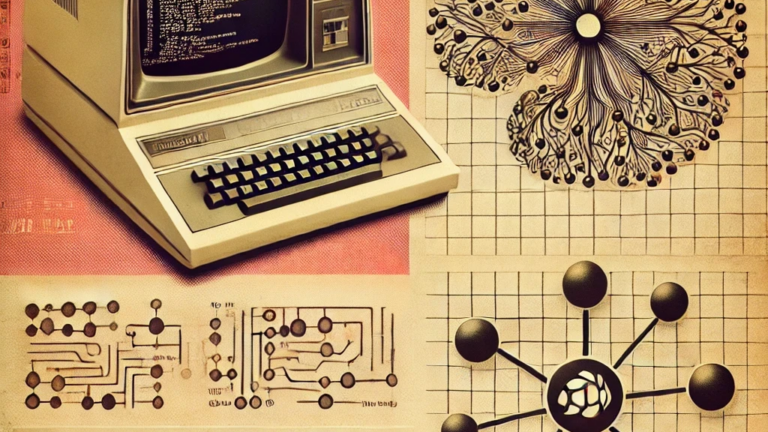Key Moments That Shaped the World of AI
In the field of artificial intelligence (AI), the equivalent of the “big bang” creation of the universe can be seen as the inception of foundational theories and key milestones that sparked the growth and development of AI.
Here are some of the pivotal moments and ideas that could be considered the “big bang” of AI.
Alan Turing’s 1950 Paper “Computing Machinery and Intelligence”
Turing proposed the idea of a machine that could simulate any human intelligence, famously posing the question “Can machines think?” and introducing the concept of the Turing Test. This laid the groundwork for thinking about machine intelligence.
The Dartmouth Conference of 1956
The Dartmouth Conference is often considered the birth of AI as a field. John McCarthy, Marvin Minsky, Nathaniel Rochester, and Claude Shannon organized a summer research project at Dartmouth College, where the term “artificial intelligence” was coined. The conference brought together researchers to discuss the possibility of creating machines that could simulate human intelligence.
Development of the First AI Programs
Early AI programs such as the Logic Theorist (1955) and General Problem Solver (1957), created by Allen Newell and Herbert A. Simon, demonstrated that machines could perform tasks that required human-like reasoning.
Introduction of Neural Networks
In 1958, Frank Rosenblatt developed the Perceptron, an early type of artificial neural network. This model could learn from data, laying the foundation for modern machine learning and deep learning techniques.
Expert Systems of the 1970s and 1980s
Systems like MYCIN and DENDRAL represented significant advances in applying AI to real-world problems, using knowledge-based approaches to simulate expert decision-making in fields like medicine and chemistry.
Breakthroughs in Machine Learning and Deep Learning
The resurgence of neural networks in the 1980s and 1990s, followed by the advent of deep learning in the 2000s and 2010s, particularly with the success of convolutional neural networks (CNNs) for image recognition (e.g., AlexNet in 2012), marked significant leaps in AI capabilities.
AlphaGo’s Victory in 2016
The victory of DeepMind’s AlphaGo over world champion Go player Lee Sedol demonstrated the power of combining deep learning and reinforcement learning, showcasing AI’s ability to handle highly complex tasks and strategic thinking.
The Advent of ChatGPT in 2023
ChatGPT, based on the GPT-3 architecture developed by OpenAI, represents a monumental advancement in natural language processing (NLP). Its ability to generate coherent, contextually relevant text across a wide range of topics reflects a deep understanding of human language. The model’s scalability, human-like interaction capabilities, and widespread adoption underscore its practical utility and transformative potential. Furthermore, the ethical discussions sparked by its development highlight the importance of responsible AI innovation, making ChatGPT a pivotal moment in the ongoing evolution of artificial intelligence.
Pivotal Moments
Reflecting on these pivotal moments, it is clear that the field of artificial intelligence has undergone a remarkable evolution. It has been driven by groundbreaking ideas and technological innovations. Every milestone, from Turing’s theoretical groundwork to the rollout of ChatGPT has contributed to the rich tapestry of AI’s development. The emergence of models like ChatGPT underscore the incredible strides AI has made in recent years, showcasing its potential to tackle both complex and nuanced tasks.
The trajectory of AI promises even more breakthroughs. As boundaries are pushed for what machines can achieve, it is crucial to balance innovation with ethics. This will ensure that AI serves our best interests. The journey of artificial intelligence has just begun. It is an adventure that challenges us to rethink our relationship with technology and reimagine the possibilities of intelligent machines. The “big bang” moments in AI’s history are not just past achievements but steppingstones toward a future where AI can truly enhance and enrich our lives.
#ArtificialIntelligence #AIMilestones #TechInnovation #ChatGPT #DeepLearning #AIHistory
About the Author
Stephen Howell is a multifaceted expert with a wealth of experience in technology, business management, and development. He is the innovative mind behind the cutting-edge AI powered Kognetiks Chatbot for WordPress plugin. Utilizing the robust capabilities of OpenAI’s API, this conversational chatbot can dramatically enhance your website’s user engagement. Visit Kognetiks Chatbot for WordPress to explore how to elevate your visitors’ experience, and stay connected with his latest advancements and offerings in the WordPress community.



Leave a Reply
You must be logged in to post a comment.